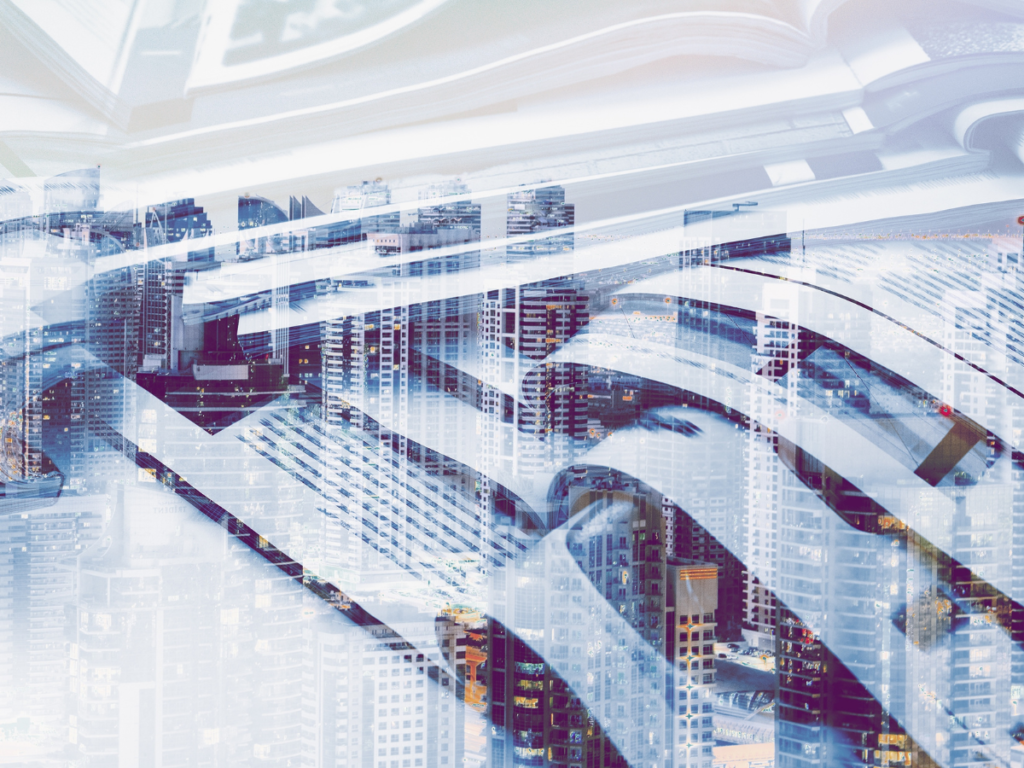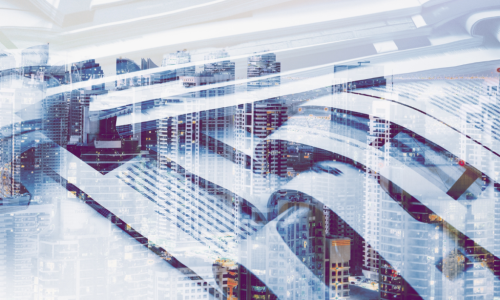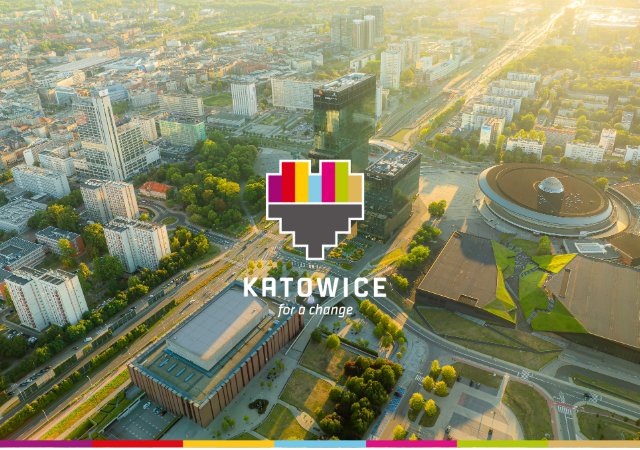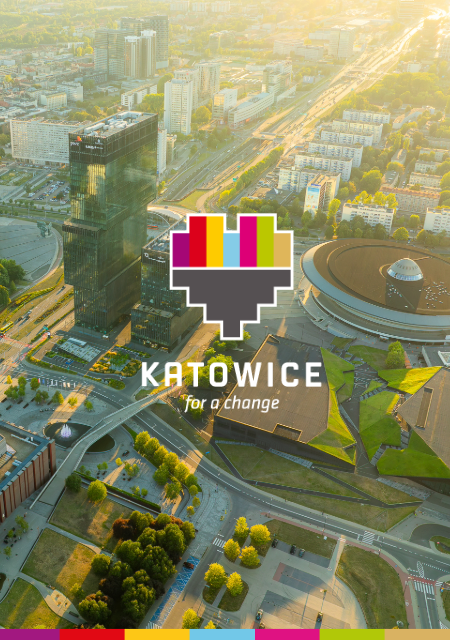- INDIA
Reference to the report on the investment directions of Polish capital
India should use free trade agreements to boost foreign direct investment inflows
India has signed three free trade agreements with Mauritius, United Arab Emirates and Australia in 2021-2022 in the hope of becoming a global trade leader. Despite these achievements, India has also seen a decline in foreign direct investment inflows – from USD 84.8 billion in 2021-2022 to USD 71.3 billion in 2022-2023. To overcome this problem, India should leverage its free trade agreements to attract greater inflows of foreign direct investment, diversify its import sources and increase its participation in global value chains.
India should use free trade agreements to boost foreign direct investment inflows | East Asia Forum (eastasiaforum.org)
India is on top in the race with China
Renowned banks such as Goldman Sachs and Morgan Stanley point to the South Asian economy as one of the best places to invest in the next decade. Investors are voting with their feet – in a year, the assets of the iShares ETF fund based on Chinese shares shrank by USD 4 billion, while the corresponding Indian equities fund increased its assets by USD 3.5 billion. Actively managed bond funds invested in India half of the amount that they withdrew from China – also purely. The Middle Kingdom is increasingly burdened by the crisis on the real estate market, to which the authorities, fearing an increase in debt, are not willing to respond decisively. At the same time, authoritarian policies increase the sense of uncertainty among consumers and small entrepreneurs.
India is on top in the race with China. Investors are fleeing – rp.pl - Vietnam
Vietnam balances the great powers
Vietnam has successfully navigated relationships with great powers such as the United States and China by balancing deterrence, reassurance, and security strategies. In the face of rising geopolitical tensions and challenges such as disputes in the South China Sea, Vietnam must continually adapt its approach, maintaining diplomatic prowess and strategic autonomy while advocating a rules-based order to protect its sovereignty and avoid conflict.
Vietnam balances between the great powers | East Asia Forum (eastasiaforum.org) - Asia
New opportunities and areas of growth
In the third quarter of 2023, economies in most Southeast Asian countries showed signs of growth and resilience, despite the cumulative effects of monetary tightening and slower global demand. Comparison of six Southeast Asian countries: Indonesia, Malaysia, Philippines, Singapore, Thailand and Vietnam.
Future of Asia
https://www.mckinsey.com/featured-insights/future-of-asia/southeast-asia-quarterly-economic-review - ESG
Standards, supply chains and “white spots”.
It is safe to say that global – moderate – ESG optimism may be strengthened. The existing positive sentiment in the ESG space is well founded, with the development of instruments such as Science Based Targets (SBTi), which are increasingly effective at tracking companies’ progress towards achieving their net zero targets. Data availability and quality have improved significantly thanks to initiatives such as CDP.
However, many corporate ESG advocates remain shocked by the recent backlash and the fact that some banks are abandoning ESG not because they don’t believe in it, but because decarbonization plans are not robust enough and therefore unreliable.
(…)
Many direct-to-consumer companies rightly claim that the majority of their emissions are Scope 3 emissions (in other words, resulting from activities that the organization indirectly influences in its value chain, rather than those that it directly controls). To reduce these emissions, companies will need to integrate their operations into supply and value chains and develop business strategies to achieve their SBTi targets. This integration has a profound impact on the way we run our economy and its foundations, such as competition law. Policymakers around the world must develop frameworks that encourage the acceleration of an ecosystem-based economy while maintaining the functionality of markets.
Faced with this situation, many investors argue that they have no choice but to continue investing in the existing linear economy, which relies heavily on fossil fuels and does not sufficiently take into account externalities. Either way, ESG seems insufficiently compelling on the shareholder floor
This is clearly not going in the right direction. Any realist will therefore acknowledge that there are mixed signals regarding progress on ESG. The risk is that the more confused or distracted we are, the higher the price we will ultimately pay – in every way.
Does the ESG evolution, under attack from many sides, need help? – And by IMD - Economists for OF
The development of AI will change global macroeconomic relations
Automating processes and self-learning computer programs, i.e. the so-called On the one hand, artificial intelligence delights and is the subject of experts’ considerations, but on the other hand, it also raises concerns, especially among many employees. Economists are convinced that the further development of artificial intelligence (AI) will have an impact on macroeconomic aggregates. Experts surveyed by “Financial Observer” indicated that it brings both positive and negative changes. 92.9% of respondents point out that its development will have macroeconomic consequences. respondents.
Financial Observer: economy, debate, Poland, world - Magdolna Sass: The role of Central Europe and domestic industry
(…) when I see the emergence of Polish companies with an international reach, I think that it is very important to have our own competitive enterprises that can afford foreign investments. We also have some signals about such companies in the Czech Republic, of a rather specific nature, as many Czech international companies are based abroad, not in the Czech Republic. Hungary also has several valuable international companies with strong foreign expansion. Slovakia is the least competitive from this point of view. I think that ownership of capital is important, which is why it is good to have your own competitive enterprises, because you can become, to some extent, independent of the situation in the world and your largest trading partners, and you can implement your own strategy. Whereas in the case of high dependence on foreign countries, either on international companies or trading partners, this is difficult to achieve.
(…)
Financial Observer: economy, debate, Poland, world - Changing the migration paradigm from crisis to opportunity
Migration is often portrayed as a crisis: when an issue hits the headlines, it is presented as a burden, a threat or a tragedy, and almost always politically intractable. In fact, migration is an opportunity and a solution and must be separated from electoral politics.
We are at the beginning of a multi-decade global trend of people moving, a trend that can be leveraged to unlock enormous good for the world. While the world’s attention focuses on the most visible symptoms of today’s broken systems, a small but precarious group of actors are already working to build a better future for people on the move, the countries that welcome them, and the countries they (often temporarily) leave.
Shifting the Paradigm on Migration From Crisis to Opportunity - Delays in shipping canals (Panama and Suez) and their impact on global supply chains.
Expected more frequent disruptions suggest the need to prepare for the future. In the Panama Canal, extreme drought has reduced the maximum number of ship crossings, resulting in longer waiting times. As a result, several carriers have already announced new transit fees in Panama.2 In addition to the costs to shipping companies and their customers, the costs of the Panama Canal itself are estimated to will increase to USD 500-700 million in 20243 compared to the previous estimate of USD 200 million.
At the same time, conflict in the Red Sea and limited access to the Suez Canal are prompting companies to reroute shipping around the Cape of Good Hope, adding approximately two weeks to transit times while raising the cost of resources such as fuel for the ship and food for the crew. While this delay is relatively short if the supply chain is properly prepared, there have been reports of automotive companies implementing line downtime in response to material shortages. The direct impact on business revenues illustrates the need to invest in resilient supply chains
Canal disruptions and shipping delays impact supply chains (mckinsey.com) - EU ambitions: scale, strategic investments and skills
In an increasingly fragmented world, the EU can only defend its interests if it can operate at scale and sustain it. From the single market to the common currency and unified positions on important issues, the EU and its member states always do better when they speak as one, and this has been demonstrated during the pandemic. However, the reality is that the EU rarely speaks with one voice. The single market, although the largest in the world economy, is imperfect. When it comes to the banking sector, there is only one market. When it comes to capital, the market is small or non-existent.
The EU is known for its large investment gaps. The European Commission says €481 billion is needed by 2030 just to achieve the EU’s climate and digital goals. However, there are other goals, including defense, health and energy, that also deserve attention. In a recent report, my co-authors and I advocate for the definition of a long-term investment strategy and priorities for the EU, given the huge number of issues requiring attention.
But that’s not enough. Where there are clear and demonstrable benefits from jointly pursuing the above priorities in the EU, funding for their implementation should be centrally agreed. On some issues, such as tackling climate change, collective action is needed; If it is not implemented collectively, it will not be resolved, given the public nature of the good. On other issues, if joint investment can be shown to have cross-border benefits, it should also be financed from a common pot. Former past The EU tries to invest strategically, but these are sporadic and limited. A common investment strategy will help achieve scale.
EU ambitions: scale, strategic investments and skills (bruegel.org) - 5 unexpected investment ideas for 2024
As investors enter 2024 facing an uncertain market outlook, uncertain economic growth and geopolitical turmoil, they have a lot to think about. This level of noise can make it especially difficult to discover insights when looking for phrases. In the latest installment of its annual “Great Debates” series,1 Morgan Stanley Research has identified dozens of topics across sectors and regions where company views diverge from market consensus. Here are five areas of key investor concern that we believe may be missing the full picture that could drive equity markets, impact industries and shape the global economy in 2024.- Airlines deal with capacity issues in 2024 by increasing revenues.
- Measures to improve sustainability continue to provide long-term investment potential.
- Copper supply disruptions are likely to result in a deficit, not a surplus.
- India’s economic growth is expected to outpace China’s for the fourth year in a row.
- The impact of anti-obesity drugs on consumer behavior may be an opportunity for some food companies.
5 unexpected investment ideas for 2024 (morganstanley.com)
- Polish companies are increasingly implementing artificial intelligence technologies
23% of Polish enterprises have already implemented artificial intelligence (AI) technologies – indicates a report commissioned by Amazon Web Services (AWS). Among companies implementing artificial intelligence, the use of large language models (LLM) or the use of generative artificial intelligence is dominant. An increased pace of implementation of advanced digital technologies, in particular artificial intelligence, could unlock PLN 576 billion for the Polish economy by 2030.
Polish companies are increasingly implementing AI technologies | electrical engineer AUTOMATION - Maintaining product quality is the biggest challenge for industrial SMEs
According to over 26 percent Industrial SMEs maintaining product quality is the biggest challenge they will face in the coming months. Entrepreneurs surveyed by Siemens Financial Services in Poland also often pointed to price increases (25.7%). They also indicated maintaining financial liquidity (19.3%). Moreover, respondents pointed out the challenges related to the increase in the number of orders (17.3%) and staff shortages (15%).
As part of the Index MiU 2023 survey, Siemens Financial Services in Poland asked entrepreneurs from the food, metal processing and plastics processing industries what challenges they will face in the coming months. Respondents most often indicated maintaining product quality (26.7%). Next – high prices (25.7%) and maintaining financial liquidity (19.3%). Moreover, almost 13 percent representatives of the surveyed industries indicated the modernization of the plant as the greatest challenge. 10 percent production automation and reducing energy consumption.
The biggest challenge for SMEs – dlaProdukcji.pl - The world’s factory strikes back
China-centric globalization is coming into question as the central paradigm underpinning the last two decades of international trade policy. Governments in the West have introduced policies to reduce their dependence on China for industrial goods. But China is not sitting idly by.
For Beijing, industrial modernization is not only about technological leadership and reducing dependence on foreign inputs, but also about modernizing traditional production. To date, despite rising wages and a shrinking population, China’s manufacturing sector remains highly competitive even in lower-value goods.
The world factory strikes back | White Paper | Hinr Foundation






